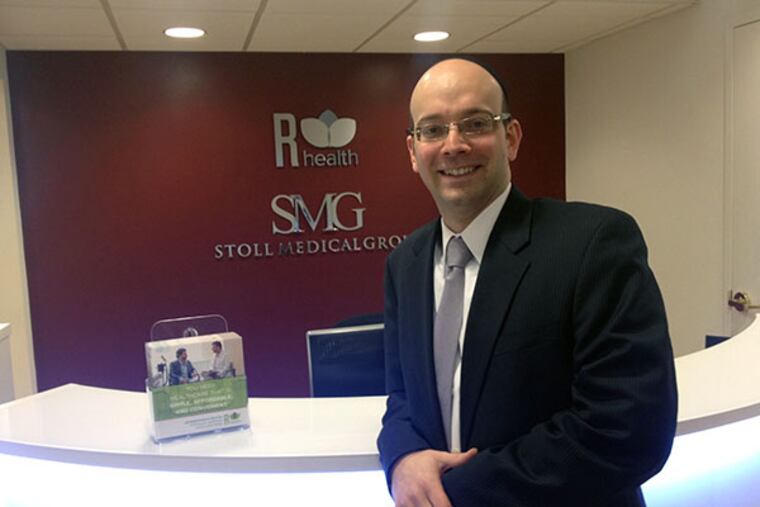R-Health pioneers direct primary care in Philly
Startup says its innovative business model can deliver better health care for patients at a lower cost.

MASON REINER, 36, and Dr. Randy Robinson, 41, both of Elkins Park, are co-founders and CEO and chief medical officer, respectively, of R-Health. The Center City startup, launched in October, charges a monthly membership fee that enables individuals, employers, unions and small businesses to see primary-care doctors without co-pays or deductibles administered through a health insurer. I spoke with Reiner, who is a Wharton School graduate and serial entrepreneur.
Q: Where did you get the money to start the business?
A: We're using our money. Once we hit a certain level and want to expand fast, that's when we'll seek outside capital.
Q: How's the biz model work?
A: Basically, we provide comprehensive and convenient care - same-day and next-day [office visits], 24/7 access to a doctor via email, phone, Skype and mobile messaging - for an affordable, monthly membership fee.
Q: What's the fee?
A: Our fees start at $79 per month for individuals and we offer group discounts for employers, unions and and families.
Q: What's the problem you're trying to solve?
A: When people have quality, reliable primary care, they achieve better outcomes at lower cost. A good primary-care doctor can actually deliver 80 to 90 percent of health care that most people require and reduce the need for unnecessary tests, specialists and visits to ERs and urgent-care centers, which drive up costs.
Q: So how does that work as a practical matter when the doctor and patient interact?
A: We want you to have a relationship with a primary-care doctor who emphasizes wellness and patient satisfaction. If you need to show me a cut and are wondering whether you should go to the ER or schedule an office visit, our doctor can do that over Skype. If you need to reach our doctor in the late evening with an important question by texting him, he can text you back through compliant software. Once you get away from the insurance reimbursement model, which is do-more-bill-more, and change it to a membership model, you can start to use technology smartly and effectively to bring down costs by delivering care more efficiently.
Q: What's your revenue goal for the year ahead?
A: Our long-term goal is to be the leading provider of direct primary care in the mid-Atlantic region.
Q: How many employees do you have?
A: We have a clinical team of four here and a corporate staff of three.
Q: You launched R-Health just when the uninsured began signing up for insurance under the Affordable Care Act.
A: There's actually a little-known clause in the ACA that authorizes direct primary care as the only noninsurance-based product that can be sold over the state exchanges when it's combined with an appropriate wrap-around insurance product.
Q: What's the biggest challenge to growing the biz?
A: People begrudgingly accept what inherently is suboptimum quality and high costs. So it's educating consumers to think about a membership model, what direct primary care is and showing them the data that supports it.
Online: ph.ly/YourBusiness